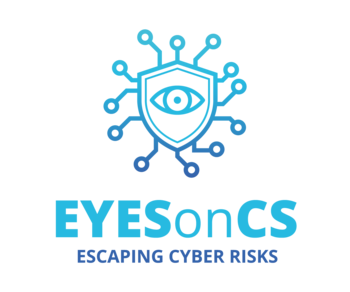
The digital age is not leaving companies unscathed. Increasing digitization is permanently changing the business processes of many companies: Not only are services, products and processes being digitised, but also the emergence of completely new business areas is increasingly taking place in the digital realm. It should also be noted that the Corona pandemic has provided a digitalization boost.
However, digital transformation does not bring benefits, but also risks and dangers. For example, shifting work to the digital world has created additional attack surfaces for cyberattacks. Employees have been sent to the home office without being adequately prepared for this work format. In particular, people without technical/IT knowledge were often overwhelmed and had difficulty coping with digital solutions. The importance of data protection and data security has become particularly clear during this period: Weaknesses in security concepts were revealed and it was shown that the topic of cyber security needs to be fundamentally revised at various levels.
The lack of knowledge in the area of cyber security and basically the awareness of the dangers and risks one is exposed to on the net are problems that many European countries are facing. In addition to the lack of IT specialists, it is especially employees without prior technical knowledge who put the data security of companies, businesses and organisations at risk. According to the reports, uninformed, ignorant and unaware employees represent the greatest vulnerability in companies. Cyber-literacy and generally raising awareness of this issue is emerging as an important topic in many educational institutions and companies.
This was where the two-year ERASMUS+ project "EyesOnCS" came in. The project was implemented under the leadership of the Fachhochschule des Mittelstands (FHM) with further partners from Germany, Portugal, and Italy.
The aim of the project was to develop innovative solutions and concrete educational products that prepares vocational students and employees without technical/IT knowledge for working safely in digital worlds.
One innovative approach was the "Escape Room" model: Experiential learning without much prior knowledge, interactive elements, and realistic situations from everyday work and learning brings the topic of "cybersecurity" closer. The development of different scenarios, according to which the Escape Rooms were structured, was intended to contain situations that can be encountered in (working) life to ensure in this way the transferability and application of what had been learned in practice.
The mixed form of the virtual learning platform with its playful learning actions on the one hand and a compendium with anonymized, real case studies on cybercrime in companies on the other hand was intended to contribute to the topic becoming more of a focus for educational institutions and companies. By using the solutions and the tool developed in the project, the aim was to deal with concrete dangers, risks, and the possibilities of minimizing them, thereby raising awareness of the topic and at the same time imparting important, practical knowledge.
Project duration: 01.01.2022 - 31.12.2023
Project volume: 225,480 €


Address
Fachhochschule des Mittelstands (FHM)
Ravensberger Straße 10 G
33602 Bielefeld
mail: info@eyesoncs.de
Send message

Funded by the European Union. Views and opinions expressed are however those of the author(s) only and do not necessarily reflect those of the European Union or the European Education and Culture Executive Agency (EACEA). Neither the European Union nor EACEA can be held responsible for them.